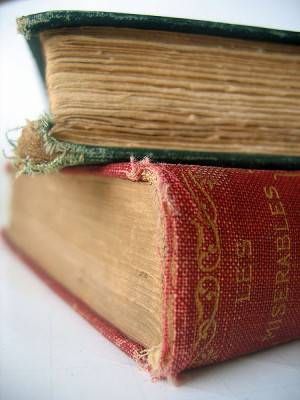
A Defense of the Canon
There are those who see the canon as something like true north on the compass of a “serious” reader, those who dismiss its importance altogether, and those in the vast middle, who might dip an occasional toe into the classics but for whom the idea of some broadly recognized stable of great works plays a marginal role in their day-to-day reading lives.
We’re all settled then, right? If you’re reading this, it’s very likely you already know what the canon means (or doesn’t) to you. Why drag this dead horse back out for another round of beating?
Well, for a long while it felt as though the big discussions about the canon seemed to focus on its composition. We debated the inclusion of this or that author or title, complained about the lack of women and minorities represented, and some of us even wondered if something could, once admitted to the canon, be later removed. These were the kinds of conversations being had on bar stools and in classrooms and coffee shops, similar to those begun by the questions, “What are your desert island, all-time top five records?” or, “What are Scorcese’s best movies?” When it comes to the literary canon, those arguments still happen, of course, but my impression is that they are increasingly limited to those with a largely academic interest in literature, rather than including the average reader.
The point is that we accepted that the canon was there and that it was, to some degree, at least, a good and helpful way of identifying books and authors that mattered in some kind of general way, even if it was imperfect.
We’ve now taken that admitted imperfection and used it as an argument for the canon’s irrelevance. The internet has done for reading what it has also done for watching films and listening to music: leveled the playing field by making discovery nearly effortless. No longer are your old English professor or the “Classics” section at Barnes and Noble your gateways to Great Books. Cult status can now be achieved in a couple of years rather than over a decade or two; niche authors and books can find a readership more easily; in five minutes, total strangers can examine your tastes and recommend you the perfect book.
And listen, I’m not complaining about any of this stuff. The internet’s vast contributions to reading are awesome, in the word’s literal sense. It’s just that a side effect of all this awesomeness is that the arguments about the canon have shifted away from what should be included and why, toward whether or not the canon is relevant in the first place. After all, who needs some mythical, inconsistently-defined reading list crammed down their throat when a leisurely scroll through a twitter feed can expand any reader’s TBR pile with targeted recommendations of books old and new, no guilt necessary?
Fair question, and a sensible one to ask. But I have a better one (And yes, I know that I’m asking both questions and the previous one just sets up this little rhetorical maneuver, but bear with me.): what is the canon for in the first place? Because if we accept that it’s some cruel fascist exercise in providing readers with a Platonic ideal for great literature, then I can understand jettisoning it in favor of some other system (any other system, really), for choosing what we should read. Maybe there are some conversation-dominating critics or academics who see the canon this way, and that’s why it’s gotten such a bad rap, but I would argue that those folks have miscast the canon as a dictate, when it’s really a conversation, a window into what the culture has valued and how that has changed – or not- over time. It’s an exercise in description, rather than prescription, a chance to work out our generation’s own ideological and intellectual place in relation to those who have read before us and those who will read after us.
Yes, the canon matters. Or, more precisely, the arguments about the canon matter. It’s important for the reading culture, in all of it’s magnificent diversity, to worry about what should be considered timeless and capital-I important, to argue about how much of what we read should be influenced by the authors and works that have essentially had their names chiseled into the stone of our collective consciousnesses, to give honest consideration to heralded works and make up our own minds. Too few women, too many dead white guys? Let’s talk about it. Too Western? Preach it. Too hesitant to include new authors and genres? Keep ’em coming. These conversations and dozens more like them enrich readers everywhere. They make us more critically engaged with our reading lives and lead to more fruitful discussions about books. No matter what you think about the canon, those are two side effects I’d bet you can live with.
_________________________
Sign up for our newsletter to have the best of Book Riot delivered straight to your inbox every two weeks. No spam. We promise.
To keep up with Book Riot on a daily basis, follow us on Twitter, like us on Facebook, , and subscribe to the Book Riot podcast in iTunes or via RSS. So much bookish goodness–all day, every day.











